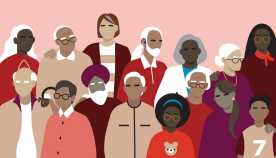About Us
June marked the 30th anniversary of the passage of the Americans With Disabilities Act, which begins with these words: “The Congress finds that physical or mental disabilities in no way diminish a person’s right to participate fully in all aspects of society…” The ADA goes on to prohibit discrimination against people with disabilities in several key areas, including employment, transportation, public accommodations and access to government services.*
Because older adults can develop physical or mental disabilities as they age, the ADA’s protections have been especially important for the people AARP and AARP Foundation represent. People with disabilities who are placed in settings that unnecessarily restrict their freedoms — such as nursing homes and other long-term care facilities — are, by definition, discriminated against because of their disabilities. Older people in these circumstances, who are already prone to being socially isolated, become increasingly segregated from their communities, which studies show has numerous negative health effects.


You have the power to change the lives of seniors in poverty
1 in 3 older adults struggle to meet their basic needs. Your gift can help seniors secure good jobs, get the benefits they've earned, and stay connected to their communities.
Of crucial significance in this regard, the Supreme Court bolstered the power of the ADA in 1999 with its landmark decision in L.C. v. Olmstead, finding that the unnecessary segregation of people in institutions is illegal discrimination that violates the ADA.

















